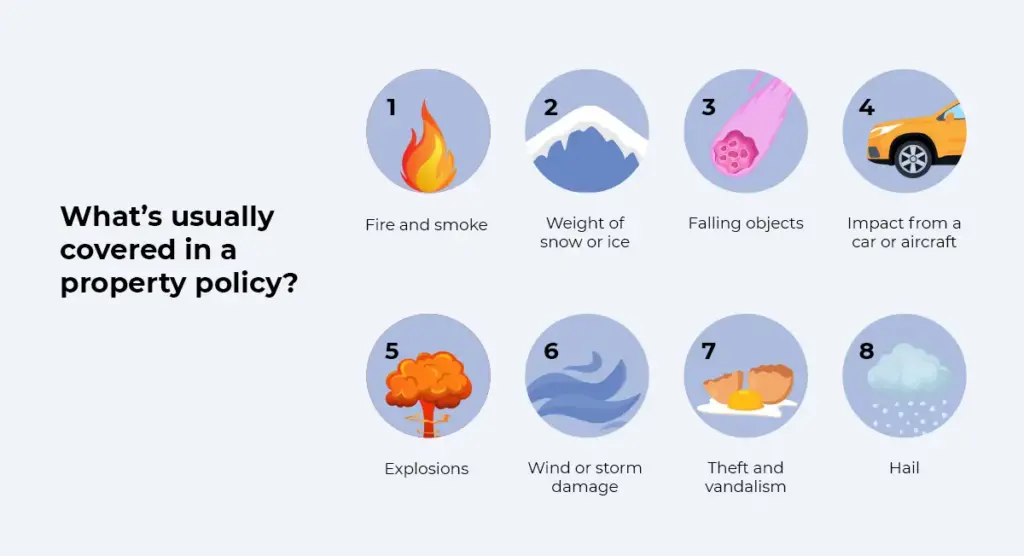Fair rental value, which is more commonly known as rental income, is perhaps one of the biggest reasons why, as a landlord, you should always disclose your renting habits to your insurer.
Whether under a landlord insurance policy or an endorsement included with your home insurance, landlords have fair rental value coverage if they suffer a loss of rental income because the property they’re renting is temporary unlivable after a covered claim.
Here’s how it works.
How does fair rental value coverage work?
Fair rental value coverage triggers when a unit is unoccupied by a tenant, but the landlord can prove that it could be occupied, were it not for the damages from an insured loss. Say you, the landlord, had purchased a property with the intentions to rent out the basement to one tenant and the main floor to another. Unfortunately, there’s an electrical problem in the basement which causes a fire, so the basement must be gutted for repairs before a tenant can move in.
In this case, the landlord would be eligible to claim fair rental value from the basement, as they cannot bring in a tenant due to the damages because of an insured loss.
Fair rental value coverage would help if a tenant can’t live in the space for an extended period after a covered loss, resulting in the landlord losing the tenant altogether. Since the landlord can’t obtain a new tenant while the space awaits repair, they would be eligible for reimbursement through their fair rental value coverage.
When wouldn’t fair rental value coverage apply?
Not all damage will render a property totally unlivable. If a claim only requires minimal repairs or a few days of emergency services where the tenant can still live in the unit, the tenant would still need to pay rent and the landlord would not be eligible for reimbursement through fair rental coverage. If the tenant is forced to evacuate during repairs or due to emergency services, then they can claim additional living expenses (ALE) from their own insurance.
Fair rental value coverage also won’t apply if:
- The tenant refuses to pay rent despite being obligated to
- The landlord chooses to waive the tenant’s rent
- The tenant doesn’t think they need to pay rent after a claim
Fair rental value coverage is for the property owner only. Your tenant would need to use their own renters insurance policy to receive a payout for their damaged belongings or for ALE. This is why landlords should always ensure their prospective tenants have secured renters insurance as per the lease agreement.
How much fair rental value reimbursement are landlords eligible for?
Many landlord policies will include endorsements which require coverage for 100% of the fair rental value. For example:
Imagine a building was insured with a fair rental value of $10,000/month. This is the amount it would take to cover all the units’ rent for a single month. An insurance policy that requires coverage for 100% of the total fair rental value would mean that the landlord would need to purchase coverage of at least $120,000 to guarantee full protection against loss of rental income for the maximum duration of the policy (up to 12 months). ($10,000/month x 12 months = $120,000.)
On the other hand, many policies will limit fair rental value coverage to 10% of the dwelling coverage. If a policy has dwelling coverage for $500,000, then the landlord would be eligible to claim up to $50,000 for fair rental value reimbursements until the property has been restored, repaired or until the 12-month policy max is up (whichever is shortest). Usually, if repairs last longer than 12 months, you won’t be eligible to claim any more money after that point. Coverage ends at the earliest date for which the property is habitable again.
Is fair rental value the same as loss of use?
Both fair rental value and ALE are coverages included in the loss of use section of your homeowners or landlord insurance policy. Fair rental value reimburses you for your lost rental income, whereas ALE pays for your temporary living expenses if you need to relocate because of a covered claim.
So, say for example you rented out your basement, and your home had a fire which rendered it unlivable. Your fair rental value coverage would reimburse you for your tenant’s rent, and your ALE would cover you and the rest of your family for any temporary living expenses incurred while your home is unlivable.
Is fair rental value coverage included as part of landlord insurance?
Whether you’ve insured your rental property under your home policy or a separate landlord policy, fair rental value coverage is usually included as part of your policy’s loss of use section. Landlord insurance does cover loss of rent (barring certain circumstances) so long as the policyholder has fair rental value coverage. Note that fair rental value coverage only activates if the loss was due something that’s already covered by your property policy (home or landlord). Usually this includes:

- Fire and smoke
- Weight of snow or ice
- Falling objects
- Impact from a car or aircraft
- Explosions
- Wind or storm damage
- Theft and vandalism
- Hail
Find great rates on landlord insurance with Mitch
For more information about fair rental value coverage, contact a Mitch Insurance broker. As brokers for over 70 of Canada’s top insurers, we’d be more than happy to answer all your questions and help you shop for a great deal on landlord insurance. Give us a call today.
Looking for landlord insurance?
Speak with a Mitch Insurance broker today to get a quote on Ontario landlord insurance.
Call now
1-800-731-2228








Is Fair Rental Value based on current market trends or is it based on what was being charged to the occupant. For example if I were allowing my child to occupy a rental unit for considerably less than the current rental market value and an insured loss took place how would this be calculated?
Hi Arthur,
Really great question. Most (not all) insurance companies base FRV on the amount you were charging the occupant before the loss occurred and not the current market trends. So, if you were renting to your child at a reduced rate, the insurer would calculate your compensation based on the lower amount. You’ll have to provide proof of the rental agreement or some kind of records of the rent being charged – if the arrangement was informal/undocumented, then there could be an issue with your claim.
We advise that if you are renting at below-market rates and are concerned about coverage, review your policy with a broker. We’re happy to help – give us a call at 1-800-731-2228.
Thanks!